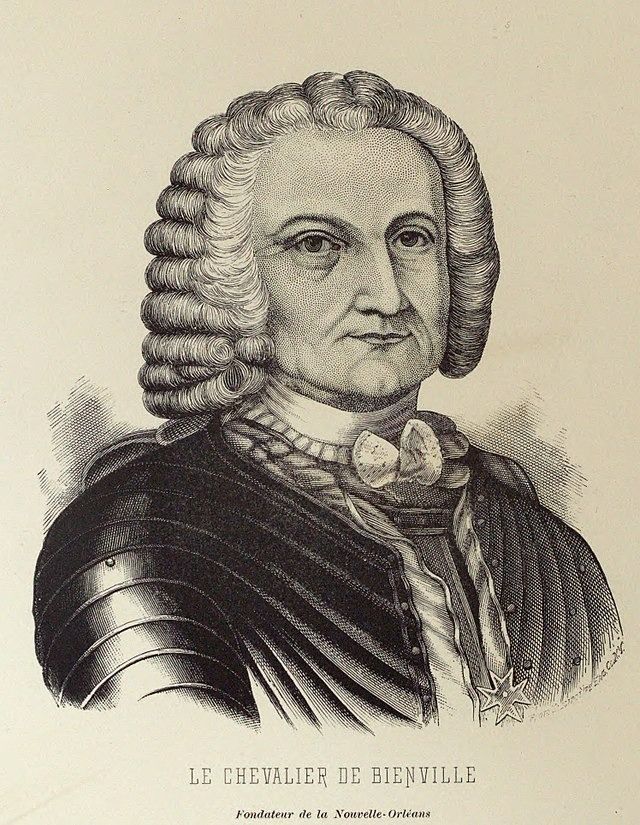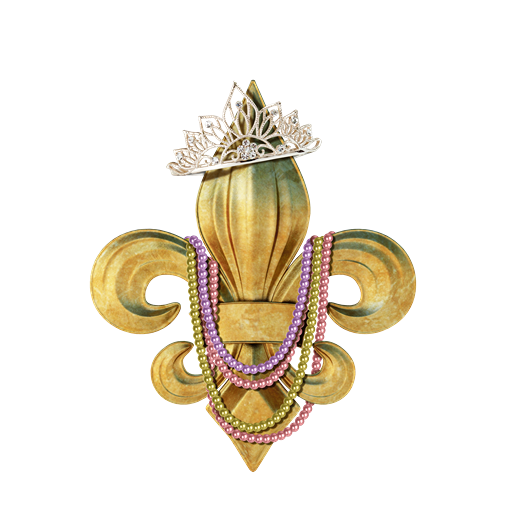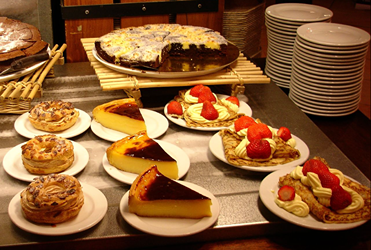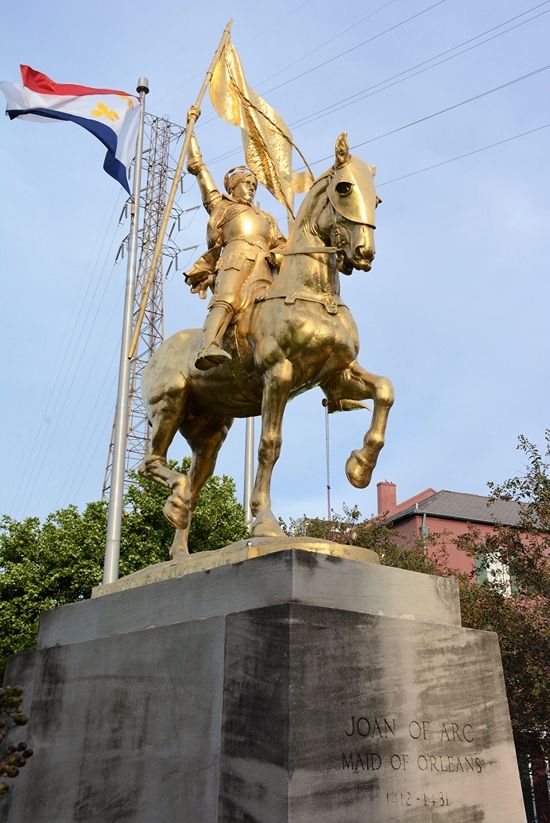French Influences in la Nouvelle-Orléans
Founded by France over 300 years ago—how much does New Orleans remain a French city? Beaucoup.
Fleur de lys, Vieux Carré architecture, Toulouse Street, pommes de terre souffles, lagniappe, Galatoire's—New Orleans seems to be very French, with little morsels of Frenchness everywhere.
New Orleans History: A French Affair
In 1718, Jean-Baptiste Le Moyne de Bienville founded New Orleans. He was a French dude (technically, French-Canadian, but with roots in France). A lot of French people soon followed him to Le Grand Easy, and they built the French Quarter with French architecture and French street names (Conti, Chartres, Saint Louis). They spoke French and cooked French and gave New Orleans a French name, which was la Nouvelle-Orléans. Without a doubt, New Orleans started out très French.

But then the Spanish stepped in and took over the city from 1763 to 1803, shortly before the Americans gained control forever after, thanks to the Louisiana Purchase. The Spanish were in power during both of the city's major fires that wiped out huge chunks of the French Quarter (in 1788 and 1794). And because they were responsible for the rebuilding efforts, the majority of original buildings in the Quarter are, in fact, Spanish in style. That, and the fact that the Spaniards helped shape the city in general in its early days, leads many historians to consider New Orleans more Spanish than French—causing some people to question: How French is New Orleans, really?
And yet, centuries later, it's the French who seem to have left the most lasting imprint on our cher town. Although New Orleans's Frenchness may have been somewhat diluted over the last 300+ years, many French fragments remain, from the Joan of Arc statue and annual parade to Mardi Gras itself. Just in time for Bastille Day, let's look at what really is French about New Orleans.

The French Language
The French language is perhaps the most obviously enduring indication of the area's French heritage. It's hard to go anywhere in New Orleans—or Louisiana, for that matter—without reminders of New Orleans's French roots smacking you in the face like a stinky French cheese in an elevator. French words are everywhere: emblazoned on street signs, displayed on storefronts, sprinkled across restaurant menus, and announcing place names from Breaux Bridge to Baton Rouge. Not to mention, there are eaux-seaux—many instances of words ending in eaux (think "Geaux Tigers").
Louisiana was bilingual for hundreds of its early years. Then, in 1921, the state constitution, trying to un-French-ify the French Louisianans in the name of Americanization, outlawed the speaking of the language in schools and many public places. All classes were taught in English, and anyone heard speaking French was ridiculed or even punished. Some children got the French whooped right out of them. This anti-French law remained in effect until 1974.
Fortunately today, schools and organizations are bringing Frenchness back. Several schools in New Orleans, including the Ecole Bilingue, the International School of Louisiana, and the Lycée Français de la Nouvelle-Orléans, have French immersion programs, where most classes are in French. The Alliance Française offers classes and events for both adults and children, and CODOFIL, or the Council for the Development of French in Louisiana, is working to boost the language throughout the state with education, programs, and French-speaking events.

The French Food
The age-old French recommendation of "let them eat cake" is actually very good advice, especially if that cake happens to be French. From pastries to pâté, the French are known for their excellent cuisine, so any cake, croissant, or crêpe they'd have you eat is going to be délicieux. Luckily for us, one of the longstanding marks left by the French in Louisiana (mixed with other influences, such as Vietnamese and African) is their food. You can still find good old-fashioned French cookin' in such famous dishes as beignets, étouffée, boudin, andouille, cochon de lait, and courtbouillon. And New Orleans has beaucoup de French restaurants, including Antoine's, Café du Monde, Café Degas, Herbsaint, and Lilette.
The French People
From approx-imately 1764 to 1785, thousands of French settlers arrived in Louisiana, after having been kicked out of Nova Scotia and the surrounding areas by the British. They became known as Cajuns. Add to that the many French colonists and sacré bleu-bloods who moved to New Orleans and the vicinity, and that makes for a lot of Frenchies all around the state, from royalty to ruralites. Their descendants still call Louisiana home—all those Boudreaux and Broussards and Guidrys that you meet. That means that a large population of New Orleanians and Louisianans really are French by direct lineage.

The French Shops
The remnants of French-ification still linger in various businesses around New Orleans. Boutique shops such as Gem de France and Aux Belles Choses sell French gifts, art, linens, and home goods, many imported straight from La Motherland. And although the French Market these days is about as French as an "I Love Paris" t-shirt that you might find at Walmart, it really does have some French history. The market predates the arrival of white settlers and later became a popular place for French vendors to sell their wares to French shoppers, who would come by to pick up handmade baskets, soaps, or whatever ingredients they might have needed to put in their étouffée.
French Influence Is Found Across New Orleans
New Orleans culture is an amalgamation of many cultures, from Vietnamese food and culture to native Cajun culture. After surveying French history and culture, however, it's clear to see the influence the French have had in New Orleans since the city's founding. Now that you know all about the French influence on New Orleans, go out and celebrate Bastille Day like the French would, and laissez les bons temps rouler.

